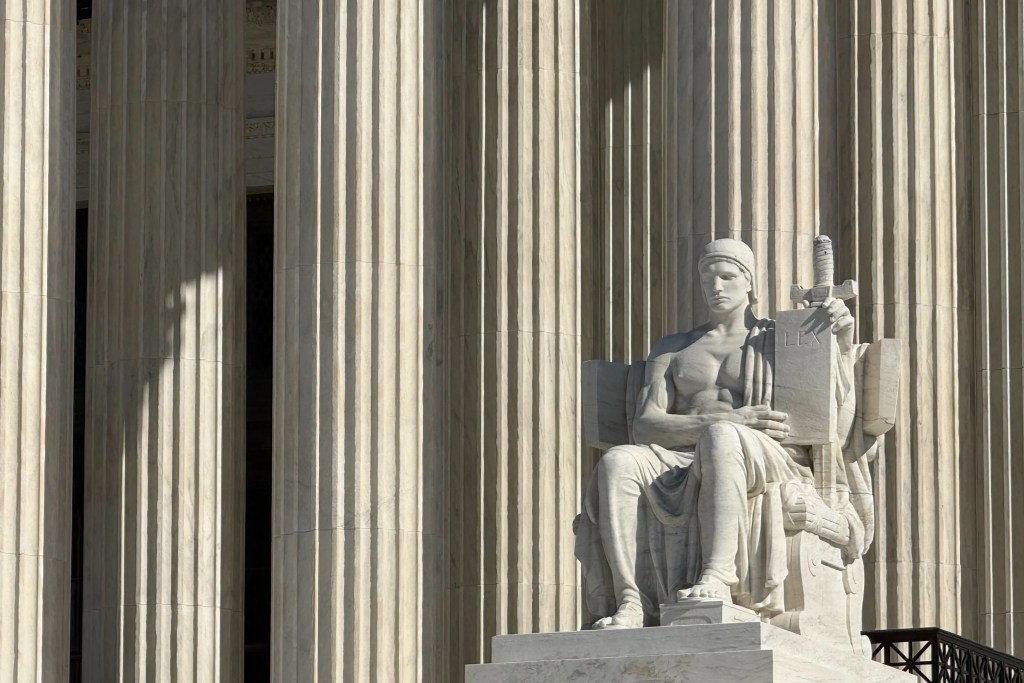Court to hear argument on whether and when drug users may possess firearms
Court rejects ICE contractor’s right to immediate appeal
Court rules criminal defendants may be prohibited from discussing ongoing testimony with counsel during an overnight recess
More news
How can the Supreme Court protect electoral integrity?
Justice, Democracy, and Law is a recurring series by Edward B. Foley that focuses on election law and the relationship of law and democracy.
The court has already confronted cases concerning the midterms, like the efforts to re-gerrymander already gerrymandered congressional districts for even more partisan advantage. And undoubtedly, the court will face many more issues before ballots are cast in the upcoming fall.
But there is one specific possibility that I want to consider now because it’s especially crucial that the court be prepared to act proactively, so as to avoid electoral subversion that can’t be remedied after it has occurred.
Continue ReadingJustices send litigation about tainted baby food back to state court
Yesterday’s decision in The Hain Celestial Group v Palmquist resolves a technical problem about what to do when district courts make a mistaken ruling about their own jurisdiction. The final word – Justice Sonia Sotomayor’s opinion for a unanimous court – says that the lack of jurisdiction by the trial court means the whole case goes back to state court.
Continue ReadingJustices reveal little about whether the deadline for removing cases to federal court can be excused
When a plaintiff files a lawsuit in state court asserting a claim that could be brought in federal court, federal law gives the defendant 30 days to remove the case to federal court. At issue in Enbridge Energy, LP v. Nessel is whether the federal statute imposing this deadline, 28 U.S.C. §1446(b)(1), allows a district court to extend (or “equitably toll”) this time limit.
Continue ReadingOpinions for Wednesday, February 25
We were live as the court released its opinions in Villarreal v. Texas and The GEO Group, Inc. v. Menocal.
Continue ReadingCourt holds that U.S. Postal Service can’t be sued over intentionally misdelivered mail
A divided Supreme Court sided with the federal government on Tuesday in U.S. Postal Service v. Konan, a dispute over mishandled mail. Writing for a 5-4 majority, Justice Clarence Thomas explained that a law protecting the U.S. Postal Service from lawsuits over lost or miscarried mail bars lawsuits over mail that was intentionally misdelivered.
Justice Sonia Sotomayor wrote a dissenting opinion, joined by Justices Elena Kagan, Neil Gorsuch, and Ketanji Brown Jackson, in which she argued that the majority opinion provided the U.S. Postal Service far more protection from lawsuits than Congress had intended to give it. “It is not the role of the Judiciary to supplant the choice Congress made because it would have chosen differently,” she wrote.
Continue Reading